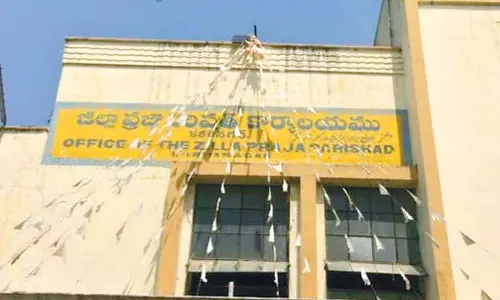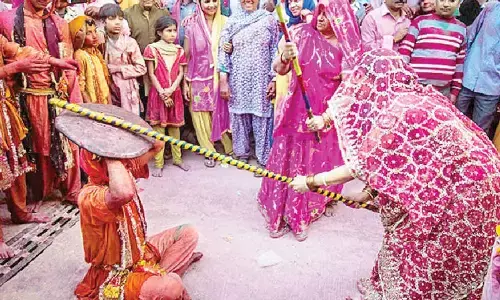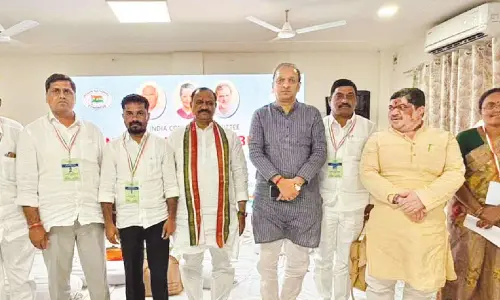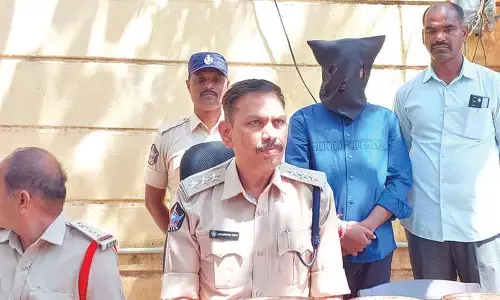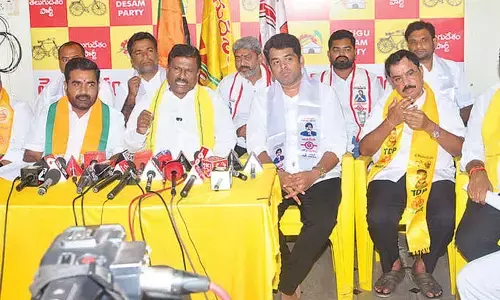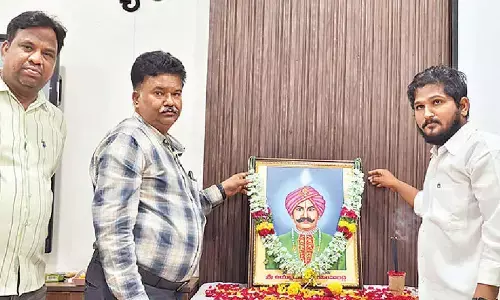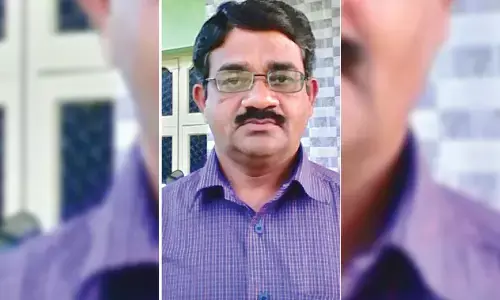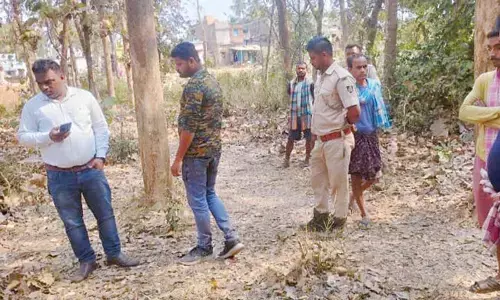Veena and Vocal - An exponent of both!
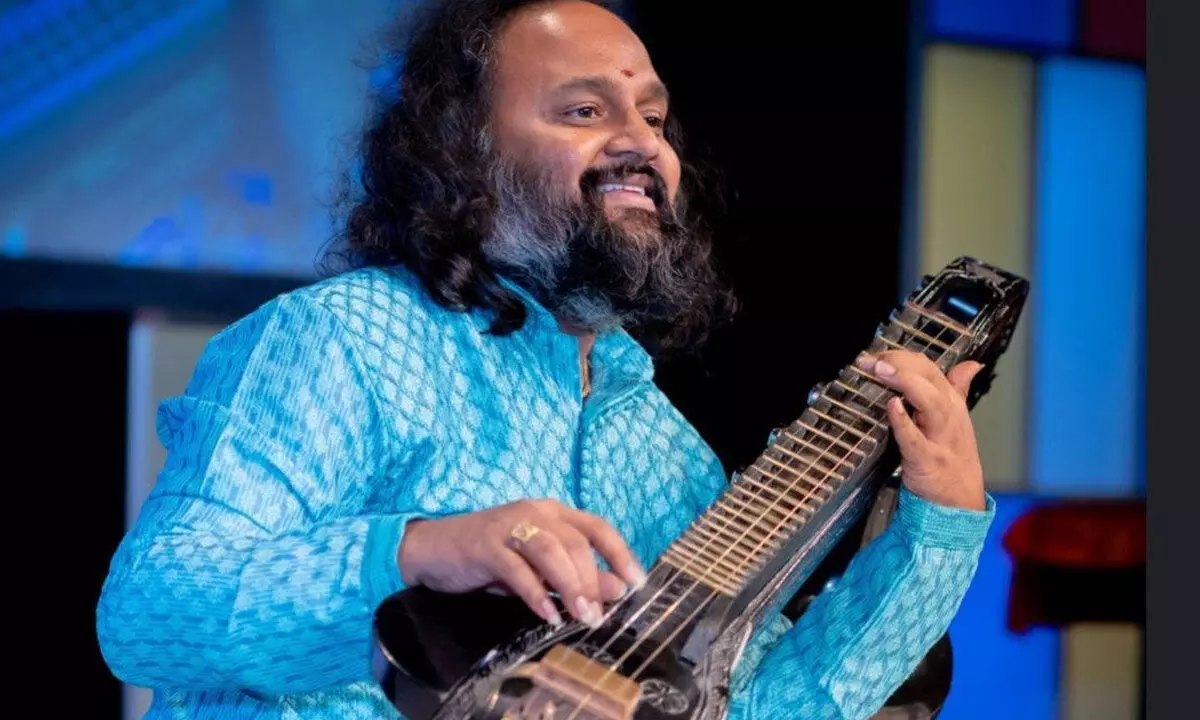
Great happiness is a thing to be practiced reverentially… like playing the Violin, Veena, Viola they say!!! Imagine the hours of joyful yet strenuous practice it takes for a musician to carve a niche, make a mark!!
Great happiness is a thing to be practiced reverentially… like playing the Violin, Veena, Viola they say!!! Imagine the hours of joyful yet strenuous practice it takes for a musician to carve a niche, make a mark!!
Vid. Phani Narayana, a seventh- generation Veena Player, is the founder of the music band “String Wings”. With 25 years of experience in teaching the veena and vocals, he is a musician par excellence. He has been associated with TTD from 2005, and with “Art Of Living“, where he led a 2000 artists Veena Concert Association with Divyasaketam as a music director and core performer. He is also deeply involved with the south Indian film industry from the last 20 years.
Excerpts from the interview:
What were your initial influences and your learning trajectory?
My musical journey is deeply rooted in tradition, as I come from a seventh-generation family of Veena players. I began learning organically at home, absorbing the nuances of Veena from my elders. My learning also involved assisting my mother in teaching, which helped me grasp the importance of teaching as a method of learning. I studied the works of maestros like Dr. Chitti Babu and S. Balachander, and Pudukkotai Krishnamurthy played a pivotal role in guiding me toward a more formal musical path. My unique learning experience combined the traditional guru-shishya parampara with a more collaborative approach, where teaching and observing became integral parts of my growth.
Please talk about your individual style – Manodharma aspect as a performer!
My style is rooted in the Gayaki tradition of Veena playing, a hallmark of our Vadali lineage. What sets me apart is how I make the Veena ‘sing,’ focusing on its lyrical qualities and the nuances typically associated with vocal music. Manodharma, or the art of spontaneous musical elaboration, is central to my performances. I adjust my playing according to the audience’s energy, creating a unique dialogue at each concert. A memorable moment was when the legendary S.P. Balasubrahmanyam compared my style to Ustad Raees Khan’s sitar playing, a compliment that affirmed my emphasis on melodic fluidity and vocal-like expressiveness.
As a guru, what teaching methods do you adopt to teach students to play with high proficiency?
I focus on transcending the traditional guru-shishya relationship by fully investing in my students’ growth. My teaching methodology blends theoretical knowledge with practical experience. My development as a teacher also evolved by mentoring others, and this approach has led to remarkable results. Starting with 60 students in Kakinada, I’ve mentored notable artists, and today, I teach over 200 students in the United States. Many have gone on to become professional performers, with several achieving high levels of success. For me, being a guru is about nurturing each student’s individual journey, blending my experiences as both a learner and a teacher.
In a world of increasing fusion music, do you see the potential for the veena to hold its global audience? Explain about your well-appreciated tours abroad.
My relationship with the Veena took a transformative turn with international tours in 2009 and 2013. I began incorporating fusion and Western elements into my music, resonating with a diverse audience. While American audiences appreciate the traditional essence of the Veena, the Indian diaspora enjoys how the instrument adapts to modern expressions while preserving its classical soul. A particularly memorable performance in 2022 at Iowa State University involved a fusion performance with university students, highlighting the Veena’s growing appeal globally and proving that traditional art forms can evolve and transcend boundaries.
Talk about your “String Wings” initiative.
Founded in 2014, String Wings began as a classical ensemble but has since evolved into one of South India’s leading music bands. We expanded from classical music to film scores, blending various genres to create unique musical experiences. Our adaptability has set us apart in India’s contemporary music scene, where we’ve redefined how traditional and modern elements can coexist.
Your multifaceted interests and how do you time manage them?
My musical journey is multifaceted, encompassing roles as a composer, performer, and teacher. I’ve created a space in my recording studio where vocal performances, intricate recordings, and creative compositions come together. I have also composed music for 25 major dance ballets and created albums for TTD. The convergence of my passion and profession has given me the luxury of time to experiment and evolve, deepening my connection to my art and allowing me to continually create new experiences for my audience.


